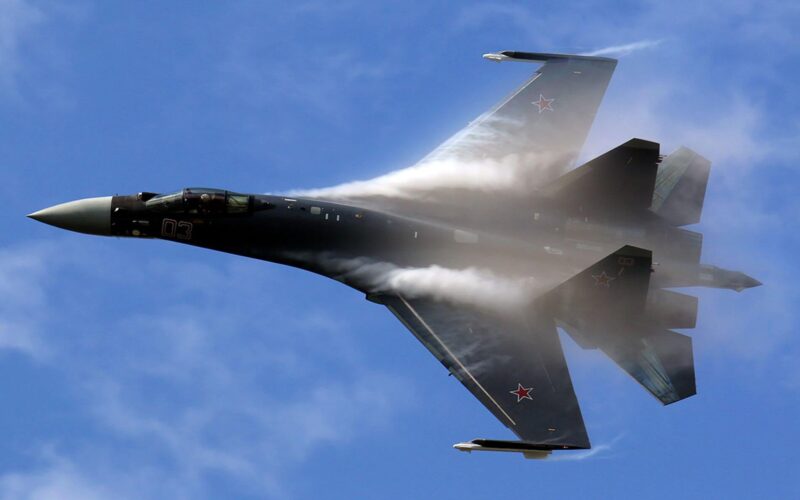The case of major Vasily Savelyev, a Russian Sukhoi Su-35 pilot who fired live rounds and shot down his partner during an exercise, has been transferred to Tver garrison’s military court.
The transfer occurred on October 21, 2021, Russian newspaper Kommersant reports.
The pilot is accused of violating the rules of operation and combat use of a military aircraft, in accordance with the Article no. 351 of the Russian Criminal Code. He can face up to seven years in jail.
The incident occurred on September 22, 2020, above Borisovsky Khotilovo air base in Tver Oblast, approximately 300 kilometers (190 miles) northeast of Moscow.
Two Sukhoi Su-35S and one Su-30M2 fighter jets were practicing combat maneuvers at high and medium altitudes. According to Kommersant, the exercise involved Su-35s being attacked by the Su-30, followed by a counterattack.
The pilots engaged special gun cameras mounted on their aircraft. The cameras, activated by the same button as the real gun, could capture the ‘kill’ moment, confirming the result of the exercise.
However, during the counterattack, an Su-35, piloted by flight leader Savelyev, fired a burst of 30 mm rounds from its GSh-30-1 autocannon.
Five shells hit the right wing of the Su-30, and the heavily damaged aircraft became uncontrollable. Both pilots from the two-seater jet managed to eject before the airplane crashed.
An investigation has been opened, and the Main Military Investigation Directorate of the Investigative Committee of the Russian Federation found Savelyev guilty.
According to protocol, the aircraft has to be prepared for the exercise by disengaging the gun and engaging the gun camera. The entire weapons control system has to be deactivated. In addition, the pilot has to perform an additional check by firing his gun in a safe direction before the start of the exercise.
According to the Committee, Savelyev did not perform the check, which was declared a violation of the rules of operation. However, the pilot appealed the decision, stating that the ground crew had to disengage the weapons system, as well as physically remove the belt with the rounds from the autocannon. Savelyev also said that the exercise was intended to be as close to the real engagement as possible, which ruled out performing any additional checks.
Following Savelyev’s appeal, the case was transferred to the Tver garrison’s military court. According to Kommersant, the day of the trial has not yet been assigned.

